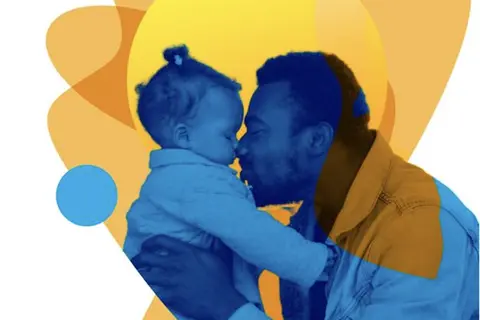Choosing to write a new story: becoming a parent after a difficult childhood
Being a fatherHow Quinton Pretorius chose a radically different path of parenting
I don’t have many memories of my biological dad. He was shot in front of my brother and me in December 1980. My mother got remarried to a man who turned out to be really abusive. He drank a lot and focused his abuse on my mother, only threatening to beat us if we did not call him “dad”. My mom gathered the courage to leave him several times, and we would relocate to a different part of Johannesburg. But then he would find us, profusely apologetic, and we would have to go back to live with him when our money had run out. Within a few weeks, he returned to his violent tendencies and so the abusive cycle continued. When I think of the physical abuse that my mom endured, that wasn’t what broke her, it was the emotional abuse that caused her much greater spiritual and emotional harm.
I am a product of my circumstances, but not in a negative way. I don’t see myself as a victim but as a beneficiary of understanding what it means to hustle in difficult times. I learnt to be resilient. My experience growing up helped me realise that the circumstances you may find yourself in, are not permanent.
Finding other role models
Faith has played a major role in determining how I behave as a husband to my wife and a dad to my children. This journey started at the age of fifteen when I joined a community of faith because they showed me love, not pity. It was here that I saw how fathers in the congregation parented, and those lessons helped me when I became a dad. A good friend at school’s dad also taught me about fatherhood without even realising it. He simply loved his daughters well and spoke to his sons in a way that resonated with me. So I adopted that as another point of reference to use when I became a dad.
Even if you’re going through a difficult time, there’s an alternative way to live after that. You can create a new narrative. One of the ways this has played out in my life is in how we discipline our children. My wife and I decided not to use corporal punishment with our children when our youngest was two years old because this is not the kind of discipline we value in our home.
Making mistakes
We’ve taught our children that we all make mistakes – and we all don’t always live up to our values. So if they realise they’ve done something wrong, there’s space for them to tell us about it first and face less severe consequences. This emphasis on transparency works very well. We have a stronger focus on reward than punishment – we don’t highlight the negative. We look at what our children are gifted at, and celebrate and reward them accordingly.
We’ve found that asking questions around behaviour and, sometimes, a stern talking to, have been enough to discipline our children. I can’t remember the last time we asked one of our children to go to their room, or grounded them. Rather, we deal with issues as they come up.
When facing frustration with our spouse or children, each of us has a choice in how we respond. If you blame your wife or children for causing you to lose your temper, you are abandoning your freedom to choose your response. Choose differently to those who went before you. If you feel like you are trapped in a generational cycle of violence, this is your opportunity to create a new story.
If you would like to learn how to be present as a father while working, Quinton recommends the book "When Work and Family Collide: Keeping Your Job from Cheating Your Family" by Andy Stanley

Heartlines
At Heartlines, the Centre for Values Promotion, we believe in the power of story and positive values to touch hearts and transform behaviour.
Featured






